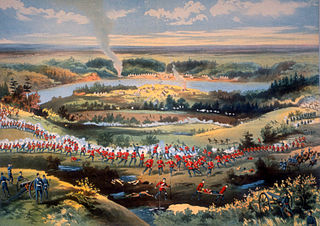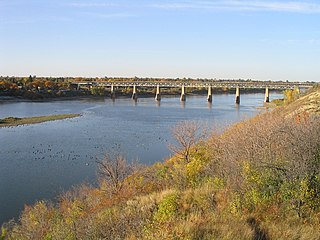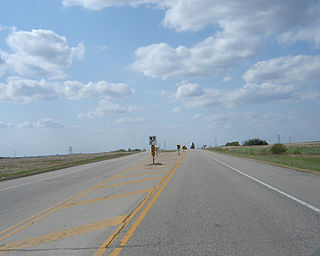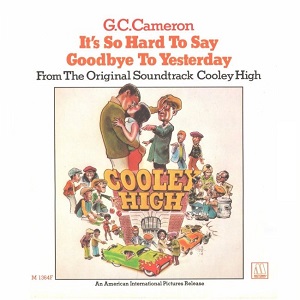Related Research Articles

The North-West Rebellion, also known as the North-West Resistance, was an armed resistance movement by the Métis under Louis Riel and an associated uprising by Cree and Assiniboine of the District of Saskatchewan, North-West Territories, against the Canadian government. Many Métis felt that Canada was not protecting their rights, their land, and their survival as a distinct people. Fighting broke out in late March, and the conflict ended in June. About 91 people were killed in the fighting that occurred that spring before the conflict ended with the capture of Batoche in May 1885.

The Saskatchewan River is a major river in Canada. It stretches about 550 kilometres (340 mi) from where it is formed by the joining of the North Saskatchewan River and South Saskatchewan River just east of Prince Albert, Saskatchewan, to Lake Winnipeg. It flows roughly eastward across Saskatchewan and Manitoba to empty into Lake Winnipeg. Through its tributaries the North Saskatchewan and South Saskatchewan, its watershed encompasses much of the prairie regions of Canada, stretching westward to the Rocky Mountains in Alberta and north-western Montana in the United States.

The Yellowhead Highway is a major interprovincial highway in Western Canada that runs from Winnipeg to Graham Island off the coast of British Columbia via Saskatoon and Edmonton. It stretches across the four western Canadian provinces of British Columbia, Alberta, Saskatchewan, and Manitoba and is part of the Trans-Canada Highway system and the larger National Highway System, but should not be confused with the more southerly, originally-designated Trans-Canada Highway. The highway was officially opened in 1970. Beginning in 1990, the green and white Trans-Canada logo is used to designate the roadway.

The music of the Canadian Prairies includes the music of the Prairie Provinces of Manitoba, Saskatchewan and Alberta.
Manitoba has produced much Canadian music, especially since the early 1960s.

Batoche, Saskatchewan, which lies between Prince Albert and Saskatoon, was the site of the historic Battle of Batoche during the North-West Rebellion of 1885. The battle resulted in the defeat of Louis Riel and his Métis forces by Major General Frederick Middleton and his Northwest Field Force. Batoche was then a small village of some 500 residents. The site has since become depopulated and now has few residents. The 1885 church building and a few other historic buildings have been preserved, and the site is a National Historic Site.

The Battle of Batoche was the decisive battle of the North-West Rebellion, which pitted the Canadian authorities against a force of First Nations and Métis people. Fought from May 9 to 12, 1885, at the ad hoc Provisional Government of Saskatchewan capital of Batoche, the greater numbers and superior firepower of General Frederick Middleton's force eventually overwhelmed the Métis fighters.

Highway 16 is a provincial highway in the Canadian province of Saskatchewan. It is the Saskatchewan section of the Yellowhead Highway, and also the Trans-Canada Highway Yellowhead section. The main purpose of this highway is to connect Saskatchewan with Canadian cities such as Edmonton and Winnipeg. The highway runs from the Alberta boundary in Lloydminster to the Manitoba boundary near Marchwell. Major cities it passes through are Saskatoon, North Battleford in the central part of the province, Yorkton in the far east and Lloydminster to the far west.
Allen Sapp was a Canadian Cree painter, who resided in North Battleford, Saskatchewan. His art and his story have become known throughout Canada. Many of his paintings feature images of his grandmother. His work and life story have been the subject of a number of books and television documentaries.

The Provisional Government of Saskatchewan was an independent state declared during the North-West Rebellion of 1885 in the District of Saskatchewan of the North-West Territories. It included parts of the present-day Canadian provinces of Alberta, Saskatchewan, and Manitoba. The name was given by Louis Riel. Although Riel initially hoped to rally the Countryborn, Cree, and European settlers of the Saskatchewan Valley to his banner, this did not occur. The government, with the exception of Honoré Jaxon and Chief White Cap, had an entirely French-speaking and Métis leadership. Gabriel Dumont was proclaimed adjutant general in which capacity he became supreme military commander, although Riel could, and did, override his tactical decisions. The Provisional Government was declared by Riel on March 19, 1885. It ceased to exist following the defeat of the Métis militarily during the Battle of Batoche, which concluded on May 20, 1885. During its existence the government only exercised authority over the Southbranch Settlements along the South Saskatchewan River. Other major centres in the area such as Prince Albert, Saskatoon, and most First Nations reserves remained outside of its control.

The Canadian Chamber Choir 's mission is to build community through choral singing. The CCC is a national ensemble that provides a professional choral environment for Canadian singers, conductors and composers, and travels across Canada promoting Canadian choral music. Under the artistic direction of Julia Davids, the CCC convenes in different regions of Canada twice a year, offering concerts and mentoring choral practitioners of all ages and stages.

"It's So Hard to Say Goodbye to Yesterday" is an R&B song written by Motown husband-and-wife songwriting team Freddie Perren and Christine Yarian for the 1975 film Cooley High. In the film, the song is performed by Motown artist G.C. Cameron, whose rendition peaked at number 38 on the Billboard R&B singles chart that same year. Perren also composed the instrumental score for Cooley High, and the B-side to "It's So Hard to Say Goodbye to Yesterday" features two of his score compositions from the film.

Culture of Saskatchewan views the patterns of human activity in the central prairie province of Canada examining the way people live in the geography, climate, and social context of Saskatchewan.
Jewel & Blaire Restaneo are an American acting, songwriting team, and pop duo MUJYBELA from Houston, Pennsylvania. They have been in Broadway Shows such as Annie Get Your Gun and A Christmas Carol. They have had starring and co-starring roles in many TV shows.
Saskatchewan has a transportation infrastructure system of roads, highways, freeways, airports, ferries, pipelines, trails, waterways, and railway systems serving a population of approximately 1,132,505 inhabitants year-round.
Eagle & Hawk is a Canadian First Nations rock group based in Winnipeg, Manitoba, active since 1994. They are most noted for winning the Juno Award for Best Music of Aboriginal Canada Recording in 2002 for their album On and On. The band had numerous members throughout its history, with guitarist Vince Fontaine as the primary and constant member.
Jean Baptiste "John" Arcand, is a Canadian fiddler, composer, teacher, and luthier. Arcand has been composing and performing since childhood, having learned the traditional Métis tunes from his father Victor and his grandfather Jean-Baptiste. John Arcand has said, "I knew from childhood I would be a fiddler." "I love the constant challenge because you cannot ever master the fiddle." He is known for the impeccable sense of timing in his music, a skill that is necessary when guiding dancers.
Maxime Lépine was a Métis businessman and political figure from Canada. Lépine joined Louis Riel's provisional government in Red River in 1869. A founding member of the Union Saint-Alexandre, Lépine sought to bring together Métis of French-Canadian and Catholic origins. Later, Lépine represented St. Francois Xavier East in the Legislative Assembly of Manitoba from 1874 to 1878.
Sherry Farrell Racette is a First Nations feminist scholar, author, curator, and artist. She is best known for her contributions to Indigenous and Canadian art histories. She is currently an associate professor of Visual Arts at the University of Regina.
References
- ↑ Feliciter - Volume 41; Volume 4, Issue 1 - Page 30
- ↑ "Canada's Children Find their Voices", Billboard, August 12, 2000, page 77.
- ↑ Dan Zakreski (Jan 20, 2019). "Sask. folk singer who played with the greats helped connect Indigenous kids to their culture". CBC News.
- ↑ Timothy J. O'Brien, David Ensminger, Mojo Hand: The Life and Music of Lightnin' Hopkins, 2013. page 224
- ↑ "Much Music". Archived from the original on December 31, 2005. Retrieved December 31, 2005.
- ↑ "Don Freed". Winnipeg, Manitoba: Manitoba Music Industry Association. Archived from the original on July 14, 2011. Retrieved December 22, 2009.